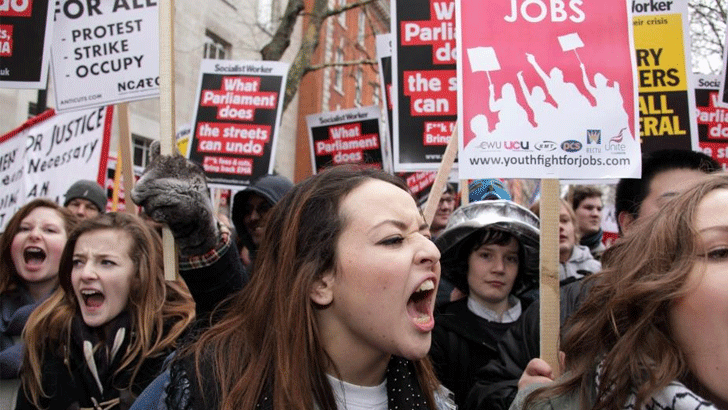Fighting women’s oppression today

Louise O’Shea, whose article ‘Marxism and Women’s Liberation’ appears in the latest Marxist Left Review, argues that Marxist analysis is central to the struggle for women’s liberation.
When Canadian tennis player Genie Bouchard was asked who she would like to date, in a post-match interview after her unexpected Australian Open quarterfinal victory, a collective groan emanated from anti-sexists everywhere.
This incident, relatively minor in the scheme of things, seemed to encapsulate something typical about sexism today. On the one hand, there is the appearance of equality, on the other persistent sexism that continues to pervade the lives of women.
Similarly, while the first female prime minister was making rousing speeches against misogyny, she was simultaneously slashing the single parents’ pension and vacillating over equal pay.
The richest person in Australia is a woman, but working women’s wages continue to fall behind men’s. Women command major banks, like Westpac CEO Gail Kelly, at the same time as the finance industry has the biggest gender pay gap.
To understand this contradiction, it is necessary to look at what has and hasn’t changed for women over the last 40 years. While important victories have been conceded to our side on divorce, the right of married women to work, reproductive freedom and equal pay at a formal level, the basic inequality of the system and the underlying economic and social structures have not changed.
The mass of workers continue to be under pressure to accept ever worsening conditions and encouraged to see each other as the enemy. Social services continue to be inadequate and under threat and the family expected to shoulder the burden. And a market persists in which women are sold endless products in order that they better conform to society’s expectations.
Bosses and governments continue to benefit from the underpayment of women at work, their unpaid domestic labour in the home and the maintenance of the economic and social institution of the family through which sexist expectations, practices and ideology are imposed on women.
In short, sexism persists because capitalism does.
But with the drift away from class politics that has characterised the period since the high point of struggle in the late 1960s and early 1970s, analyses that situate social inequality in its economic and structural context have become less and less fashionable.
A focus on more personal and easily observable manifestations of oppression, such as body image, sexual practices and interpersonal behaviour, have instead assumed greater importance in the common sense understanding of sexism.
This has dovetailed with the rise of a layer of relatively privileged, middle class women, who owe their position to the efforts of radical women before them but who have now made peace with the system, and as such have no desire to link sexism with broader inequality.
Added to this, the fragmentation of the social movements of the 1960s and 1970s has undermined the confidence of many on the left that classical Marxism, and the politics of working class solidarity and struggle, are able to offer an effective framework to understand women’s oppression and a strategy to fight it.
It is therefore timely for Marxists to revisit the question of women’s oppression. Understanding the dual ways in which capitalism perpetuates sexism – through the particular position of women in the workforce and the domestic labour carried out within the family – is essential if we are to develop an effective strategy to end it. A revolutionary transformation of society, which reorganises production and personal life around the needs of the majority rather than those of a privileged minority, is central to this strategy.
Too little attention is paid today to the dynamics of working class struggle, which is frequently dismissed as a dry economic phenomenon.
This betrays an ignorance of its tendency to transform those involved, challenge longstanding prejudices on a mass scale, draw women and other oppressed groups into political activity and ultimately strike at the structural basis of all oppression through replacing capitalist rule with that of the working class.
History demonstrates that formal equality does not end sexism, and that social movements alone are insufficient. Instead, women’s liberation is bound up with working class self-emancipation, which is why Marxism continues to be of relevance to those wanting to fight sexism.
[Read Louise O’Shea’s “Marxism and women’s liberation” in the latest issue of Marxist Left Review, Socialist Alternative’s theoretical journal.]